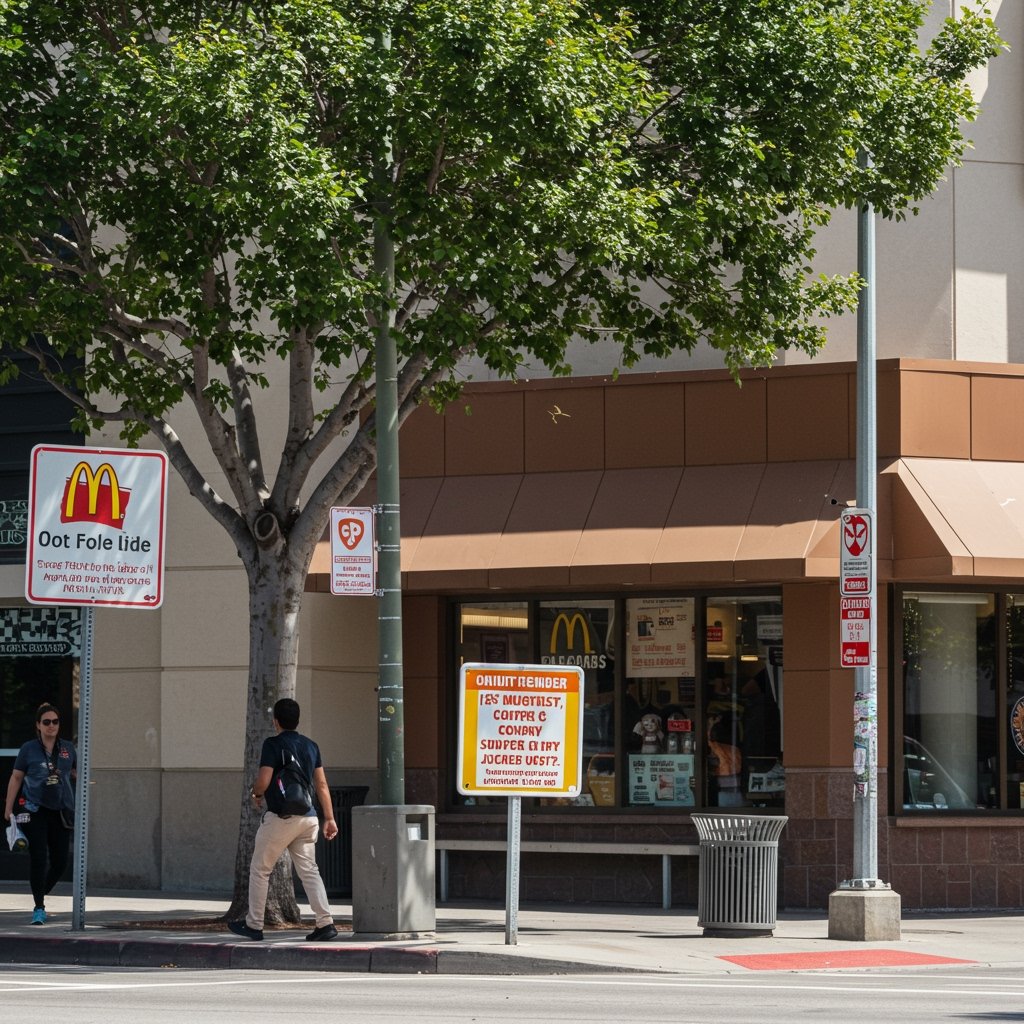California’s Proposed Fast Food Wage Hike Sparks Warnings of Potential Price Increases
California’s dynamic legislative landscape is once again at the forefront of national economic discussion, particularly concerning the fast food industry. Following the California State Legislature’s active consideration of Assembly Bill 123 (AB 123), which proposes a significant increase to the minimum wage for fast food workers, major national chains with extensive operations across the state are publicly signaling potential operational adjustments. The most notable of these anticipated changes appears to be adjustments to menu pricing for consumers.
Executives from several prominent fast food parent companies, including industry giant McDonald’s and Restaurant Brands International (RBI), the parent company overseeing well-known brands like Burger King and Popeyes, addressed the potential impacts during recent investor calls this week. These calls are standard quarterly events where company leaders discuss financial performance, future strategies, and potential headwinds or tailwinds with investors and financial analysts.
During these discussions, executives indicated that a substantial increase in labor costs within California, as potentially mandated by AB 123, would necessitate measures to offset the financial impact and maintain profitability. While they refrained from announcing specific, concrete price hike percentages or timelines as definitive plans, the messaging was clear: significant upward adjustments to menu prices are likely on the horizon if the bill is enacted into law as it currently stands.
Industry Projections and Potential Consumer Impact
The signals from these investor calls are based on internal company analyses and projections. According to reports referencing these internal assessments, companies are reportedly projecting average price increases ranging from 5% to 10% across select menu items. These potential adjustments are not envisioned as immediate upon the bill’s passage but are reportedly projected to take effect by late 2025 if AB 123 is passed as currently drafted.
It is crucial to emphasize that these figures represent internal projections and potential scenarios rather than confirmed, universal price changes across all menu items or all chains. The actual implementation, percentage, and scope of any price adjustments would be contingent upon the final language of the bill, its eventual passage into law, and individual company strategies in response.
The reasoning behind the potential price hikes, as articulated by company leadership, directly links to the proposed $25 minimum wage for fast food workers stipulated in AB 123. Labor costs constitute a significant portion of operational expenses for fast food restaurants. A mandated wage increase of this magnitude, particularly in a high-cost state like California, would drastically alter the cost structure of doing business for these chains within the state.
Maintaining existing profit margins and ensuring the financial viability of their California operations, companies argue, would necessitate revenue adjustments, with price increases being a primary mechanism.
Broader Industry Dynamics and Automation
Beyond the large corporate chains, the fast food industry in California includes a vast network of smaller, independent operators and franchisees who may face even more acute pressure. Industry analysts observing the situation predict that these smaller businesses, often operating with thinner margins and fewer resources than their large corporate counterparts, could experience greater financial strain under a significantly higher minimum wage.
Analysts also suggest that the prospect of substantial labor cost increases might accelerate the exploration and adoption of increased automation within the industry, particularly among these smaller operators seeking ways to mitigate rising expenses more quickly than larger corporations might implement such large-scale operational shifts.
California represents a massive market for the fast food industry, with a significant number of establishments and employees. The outcome of AB 123 and the industry’s response carry substantial economic implications not only for the businesses and their employees but also for millions of California consumers who frequent fast food restaurants.
The legislative process surrounding AB 123 remains ongoing, and its final form and passage are not yet guaranteed. Nevertheless, the recent investor calls from major players like McDonald’s and RBI serve as a clear signal of the industry’s anticipated response to the proposed wage increase – a response that could ultimately translate into higher costs for consumers purchasing fast food in the Golden State by late 2025 if the bill becomes law as currently proposed. Stakeholders across the state will be closely watching the developments in the legislature and the subsequent strategic decisions made by the fast food industry.



















